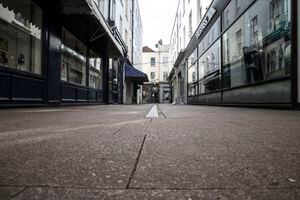Self-employed less happy with lockdown
MORE than a fifth of self-employed people who responded to a States survey thought some aspects of the lockdown restrictions were not fair or justified, compared with 13% of employed respondents.

The statistic comes from the second community survey report, which aimed to gain an understanding of how islanders coped with the lockdown in terms of employment, mood, studying and more.
A total of 3,699 people completed one of the surveys, equating to 7% of the population of the Bailiwick aged 16 and over.
A higher number of self-employed men completed the survey than women, and men were more likely to answer ‘yes’ when asked if some lockdown restrictions were not fair.
Critical workers were slightly less likely than non-critical workers to answer yes to this question, as were Guernsey-born respondents compared with those not born locally.
Travel restrictions were thought too strict for the economy to be maintained or to grow, payroll and business support was thought to be too low, and there were comments about the lack of support for critical workers, especially regarding childcare expenses.
When it came to mental health, lockdown had a negative or strongly negative impact on the mental health of 39% of employed respondents and 35% of self-employed respondents.
The sector with the highest proportions of respondents who reported a negative impact on their mental health was the information and communication sector, with 52% reporting a negative or strongly negative impact.
There was a corresponding increase in workload and hours and a negative impact on work-life balance.
More respondents found lockdown had a positive impact on their physical health than a negative one, and across all of the respondents who were employed, self-employed or seeking work, household expenditure decreased for 56%, whilst household income decreased for 43%.
Respondents indicating a household income of less than £20,000 had the least negative impact on their professional learning and development, but almost all other income brackets had negative indication of between a quarter and a fifth of respondents who were in work at the beginning of lockdown.
Survey respondents with a household income of £20,000-£39,999 were the most strongly impacted overall by lockdown with regard to professional learning and development, with the greatest proportions of respondents affected strongly in both positive and negative directions.





